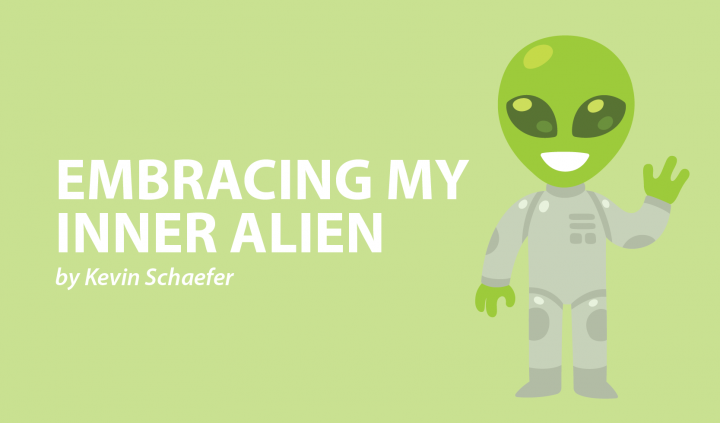SMA Is Part of My Identity, But It Doesn’t Define Me
Written by |

A few days ago, I was talking with my friend Young, a fellow journalist and comic book enthusiast who now writes a column for Charcot-Marie-Tooth News. Ever since we started having conversations about our disabilities, and since I lured him into writing his column, we talk openly about things that we never discussed as college students.
For the longest time, I didn’t even know that Young had Charcot-Marie-Tooth disease (CMT). Given that his disability is significantly less visible than mine, the topic never really came up. He has the ability to conceal his disability if he wants. People can’t tell that he has CMT from just looking at his physical appearance.
I, on the other hand, have a more difficult time hiding my disability. The wheelchair and robotic arm kind of give it away. Still, you wouldn’t believe how many physicians have asked me if I could just hop on out of my chair and over to the X-ray table (that really has happened a few times).
This dichotomy fascinated me and prompted us to talk about how much our disabilities coincide with our identities. Young has only recently begun to explore this topic in his writing and his personal life. Another close friend of ours had no idea that he has CMT, either.
As someone born with a very visible physical disability, I’ve had to deal with SMA as a major part of my life since I was a child. Yet, I’ve only come to embrace it as a unique part of my identity in recent years. Whereas it once was something I tried to ignore, it’s now something that influences my writing, my attitude, my experiences, my relationships, and my subversive humor.
However, it’s not the only part of my identity.
A few days ago when I went in for my weekly physical therapy session, an older person approached me in the waiting room. For whatever reason, I have a sixth sense when it comes to predicting awkward encounters with strangers related to my disability. Peter Parker has his “Spidey-sense,” and I have my “someone is about to say something really dumb to the guy in the wheelchair” sense.
With a straight face, this person looked at me and said: “So, do you hope to not have to be in that wheelchair one day?”
Bingo! My ableist-sense worked again!
Unperturbed, I simply stated that I was born with a disability and that being in a wheelchair doesn’t really bother me. A minute later, I was relieved when one of the staff members I know walked by, and I quickly turned to her to talk about recent and upcoming horror movies. Michael Myers literally saved me from a cringingly awkward conversation.
As the other person walked away, my friend Kenny, who drove me to my appointment, was still reeling from watching this encounter unfold. He told me how appalled he was that someone would say something so ridiculous. I then continued to make his mouth drop by telling him about two crusaders who attempted to heal me in the middle of a movie theater a few years ago. I’m not a big selfie guy, but I would have loved to capture his face the moment I told this story.
I don’t need to explain just how ignorant, rude, and foolish this person’s question was that day. It speaks for itself. My takeaway, though, is that this person, and many others, look at people like me and see only the wheelchair. They see my disability, but they don’t try to see me.
There are many ways that my disability has helped shape me into the person I am today. Still, I am much more than a person with a disability who uses a power wheelchair. I’m a writer, a pop culture enthusiast, a person of faith, and a lady magnet. I simply wish that people would try to see the whole picture when they look at me, and not just offer a quick glance.
Also, if I had had enough wit in the moment, I would have answered the question with: “Well, I kinda hope I’m not magically healed right away. Otherwise, my caregivers and I would lose our jobs.”
***
Note: SMA News Today is strictly a news and information website about the disease. It does not provide medical advice, diagnosis, or treatment. This content is not intended to be a substitute for professional medical advice, diagnosis, or treatment. Always seek the advice of your physician or other qualified health provider with any questions you may have regarding a medical condition. Never disregard professional medical advice or delay in seeking it because of something you have read on this website. The opinions expressed in this column are not those of SMA News Today, or its parent company, Bionews Services, and are intended to spark discussion about issues pertaining to spinal muscular atrophy.





Julio Chojeda Torres
I thought that I was the only one whom physicians asked to get out of my chair and over to the X-ray table, but I learned you were asked to do so several times in the US (Peru in my case). And Yes, our SMA does not define our identity.
Mehdi
Good tittle. i agree with "SMA Is Part of My Identity, But It Doesn’t Define Me"
i have question what do you learn from SMA ?